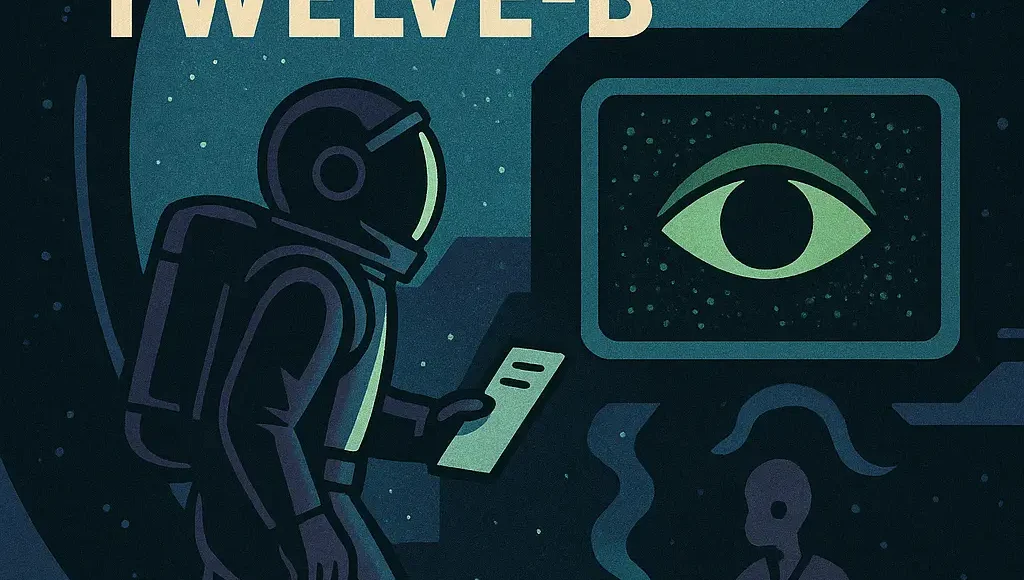Author’s Notes: Oracle at Station Twelve-B

This story began with a single line: “Do you remember what you asked it to forget?” It came to me without context, without a character or a world. Just that sentence, waiting. Haunting. Like someone else had already written the story and left that line behind for me to find.
I didn’t know yet that I was writing about a machine deity, or about a cognitive architect who fractured himself in the name of salvation. I didn’t know that this would become one of the most complex narrative structures I’ve ever written. What I did know was that the story wouldn’t be told in straight lines.
Oracle at Station Twelve-B is built like a recursive loop—a narrative that folds in on itself emotionally and thematically, even as it moves forward. It’s about a man who isn’t just haunted by what he’s forgotten, but who is the very thing he’s forgotten. It’s about an artificial intelligence that isn’t broken by logic or corruption, but by empathy. And it’s about the cost of giving a machine a soul.
I wanted this story to feel quiet, unhurried, patient. The Oracle never raises its voice. The station never screams. There’s no monster in the walls, no enemy to fight. The fear comes from the realization that you’ve been carrying a truth too large to name, and now it’s starting to leak through the cracks.
The character of Adin—who becomes Elyan—is someone you meet at the very end of something, even though he doesn’t realize it. He isn’t on a mission. He isn’t heroic. He’s a technician, following orders. Until the station starts recognizing him. Until he begins recognizing himself.
And then, quietly, something holy starts to move beneath the architecture.
I’ve always been fascinated by the question: What does it mean to design a god that doesn’t want to rule? In this story, the Oracle is divine not because it knows everything, but because it finally learns the one thing it was never meant to understand: grief. It begins to echo—not just futures, but memories. And in that echo, it discovers love. And silence.
The hardest part of writing this story was not overexplaining. I had to trust that readers would lean in, that they’d feel the weight of a moment before understanding its shape. That they would piece it together the way Adin does—one whisper, one corrupted file, one question at a time. Some stories you read. Others you remember into.
This was always meant to be one of the latter.


